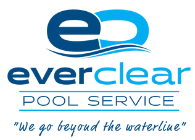A sparkling, inviting pool is the centerpiece of many backyards. Maintaining crystal-clear water requires more than just skimming the surface and vacuuming. The key lies in understanding and managing pool chemistry.
Understanding Pool Chemistry Basics
 Pool chemistry involves balancing several key elements to create a healthy and enjoyable swimming environment. These elements include:
Pool chemistry involves balancing several key elements to create a healthy and enjoyable swimming environment. These elements include:
- pH: This measures the water’s acidity or alkalinity. Ideal pH levels range from 7.2 to 7.8. Imbalanced pH can reduce the effectiveness of chlorine, irritate swimmers’ skin and eyes, and cause scale or corrosion.
- Chlorine: The primary sanitizer, chlorine kills bacteria and algae. The optimal level is 1-3 ppm (parts per million) for standard pools and 3-5 ppm for saltwater pools.
- Alkalinity: This stabilizes pH levels, preventing rapid fluctuations. The optimal range is 80-120 ppm.
- Calcium Hardness: This prevents scale formation and corrosion. Levels should be between 150-250 ppm.
- Cyanuric Acid (CYA): Also known as stabilizer, it protects chlorine from the sun’s UV rays. However, high levels can reduce chlorine efficiency.
Maintaining Chemical Balance
Achieving and maintaining optimal chemical levels requires regular testing and adjustments. Here’s how:
- Regular Testing: Use a pool test kit to measure pH, chlorine, alkalinity, and calcium hardness levels. Test your pool water at least once a week, or more frequently during hot weather or heavy pool use.
- Balancing Chemicals: Add chemicals to adjust levels as needed. For example, use pH increaser or decreaser to adjust pH, alkalinity increaser or acid to adjust alkalinity, and calcium hardness increaser or conditioner to adjust calcium hardness.
- Chlorination: Regularly add chlorine to maintain the desired level. Consider using a chlorine generator or shock treatment for heavy use or algae issues.
- Algae Prevention: Keep chlorine levels balanced, clean filters regularly, and periodically shock the pool to prevent algae growth.
The Impact of Unbalanced Chemistry
Imbalances in pool chemistry can lead to several problems:
- Cloudy Water: High pH, low chlorine, or high calcium hardness can cause cloudiness.
- Algae Growth: Low chlorine levels create an ideal environment for algae.
- Scale Formation: High calcium hardness can lead to scale buildup on pool surfaces.
- Corrosion: Low pH can corrode pool equipment and finishes.
- Irritated Swimmers: Imbalanced water can cause skin irritation and eye discomfort.
Additional Tips for Crystal Clear Water
- Skimming and Vacuuming: Regularly removing debris prevents it from contaminating the water.
- Filter Maintenance: Replace or cleanse filters as necessary to ensure optimal performance.
- Shocking the Pool: Periodically shock the pool to kill bacteria and algae, especially after heavy use or storms.
- Water Balance: Regularly check and adjust water balance to maintain crystal-clear water.
- Professional Assistance: If you’re struggling with pool chemistry, consider consulting a pool professional.
Common Pool Water Problems and Solutions
- Green Water: This usually indicates algae growth. Shock the pool, clean the filter, and adjust chlorine levels.
- Cloudy Water: This can be caused by high pH, low chlorine, or high calcium hardness. Check and adjust water balance.
- Scale: This is caused by high calcium hardness. Lower calcium hardness levels and use a scale remover.
- Acidic Water: Low pH can cause corrosion. Increase pH levels gradually.
- Alkaline Water: High pH can cause scale and cloudy water. Decrease pH levels gradually.
Advanced Pool Care Tips
- Saltwater Pools: While saltwater pools require less chlorine, they still need proper chemical balance.
- Pool Covers: Using a pool cover helps to reduce water evaporation, minimize debris, and maintain water temperature.
- Automatic Pool Cleaners: These can help to reduce manual cleaning time and improve water clarity.
- Water Temperature: Monitor water temperature as it affects chemical levels and evaporation rates.
Choosing the Right Pool Test Kit
Selecting the appropriate pool test kit is crucial for maintaining accurate water chemistry. There are several options available:
- Test Strips: Convenient but less precise.
- Liquid Test Kits: Offer more accurate results but require more steps.
- Digital Test Kits: Provide fast and accurate readings, often with multiple parameter testing.
Benefits of Using a Pool Service
While many homeowners prefer to maintain their pools independently, hiring a pool service can offer several advantages:
- Expertise: Professionals like Ever Clear Pool Service have in-depth knowledge of pool chemistry and maintenance.
- Time Savings: Pool services handle all aspects of pool care, freeing up your time.
- Equipment Maintenance: Regular inspections and maintenance of pool equipment.
- Consistent Water Quality: Ensures optimal water conditions throughout the year.
By understanding the basics of pool chemistry and following these guidelines, you can enjoy a sparkling, inviting pool all season long. Remember, consistent care and attention are key to maintaining crystal-clear water.
